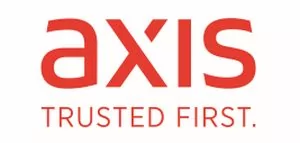- within Finance and Banking, Family and Matrimonial and Law Department Performance topic(s)
Humanity has experienced one of its most challenging years in 2020 & 2021 due to the unprecedented coronavirus pandemic ("COVID-19"). In a recent article published by the BBC, it was highlighted that economies globally have been at their worst since the financial crisis of 2008. That said, after an arduous 2021 we now turn to a hopeful 2022 where globally, business activities are getting back on track with the help of vaccines. Cross-border investments are also looking to rise again in 2022.
As an International Financial Center ("IFC") of choice, Mauritius is also experiencing change not only due to COVID-19 but also as it continues on its transformative journey to adapt to the ever-dynamic requirements of international standard setters such as the Organisation for Economic Co-operation and Development ("OECD"). Following the successful rolling out of the BEPS Project worldwide, the global landscape is now entering a new era whereby substance over form is the new norm. As one of the early adopters of OECD's Multilateral Convention to Implement Tax Treaty Related Measures to Prevent Base Erosion and Profit Shifting (the MLI), the substance requirements for Global Business Companies ("GBCs") have also been revised in order to be issued with a Tax Residency Certificate which is prima facie evidence that it is tax resident in Mauritius.
Whilst the added substance requirement will result in a higher cost of doing business, it is believed that investors will still consider a more widely acceptable structure which will reap benefits in the long term rather than a structure which is less costly and more flexible but carries a certain degree of uncertainty. Mauritius has recently developed into a jurisdiction of choice when it comes to catering for trampoline investments and business to the African continent. The island's attractive conducive legislations, its sound business ecosystem, its strong ties with Africa and its specialised workforce have all contributed towards making the paradise island a destination of choice as an IFC.
For the past three decades Mauritius has evolved towards becoming an attractive jurisdiction for DFIs, institutional and private investors for the structuring of their investment and doing business in Africa. This has been largely achievable due to the options and possibilities that the GBC provides.
WHY THE GBC AND ITS ADVANTAGES OVER OTHER STRUCTURES?
The GBC
The GBC is one of the two types of companies in Mauritius that may be set up by investors to conduct international business activities, i.e., business principally outside of Mauritius, the other being the Authorised Company. The choice between the two types of entities depends on the nature of the activity and the objective the client is trying to achieve when structuring through Mauritius. The GBC is more of an all-rounder, as it may conduct any lawful business activity governed by the Companies Act 2001 and is expected to comply with substance requirements.
A GBC is therefore expected to satisfy core substance requirements in Mauritius; namely that of having two resident directors of sucient calibre to exercise independence of mind and judgment, maintaining at all times its principal bank account in Mauritius, keeping and maintaining at all times its accounting records at its registered oce in Mauritius, preparing its statutory financial statements and causing these to be audited in Mauritius; and providing for meetings of directors to include at least 2 directors from Mauritius, be it face-to-face or by teleconference but it is recommended to have physical board meetings in Mauritius. Additional substance requirements, as detailed in the next section shall be required to benefit from the tax residency.
Partial exemptions and other taxation features
Under the provisions of Income Tax Act 1995, a tax resident company, other than Companies engaged in export of goods, is taxable at a flat rate of fifteen percent (15%) on all its chargeable income. However, a company can avail itself of a partial exemption of 80% on the following type of income/activities:
- Foreign source dividend derived by a company, provided that such dividend is not allowed as a tax-deductible item in the source country and the company satisfies the substance requirements as prescribed
- Interest derived by a company other than bank
- Income of a company engaged in ship/aircraft leasing
- All income derived by a company that is authorised as a CIS/CEF/CIS administrator /investment advisor asset manager
- Income derived by a company from reinsurance/reinsurance brokering activities
- Income by a company from leasing & provision of international fibre capacity
- Income derived by a company from the sale, financing, arrangement, asset management of aircraft and its spare parts and aviation advisory services related thereto
- Interest derived by a person from money lent through a 'Peer-to-Peer Lending' platform
- Profit attributable to a permanent establishment which a tax resident company has in a foreign country.
To view the full article click here
The content of this article is intended to provide a general guide to the subject matter. Specialist advice should be sought about your specific circumstances.


